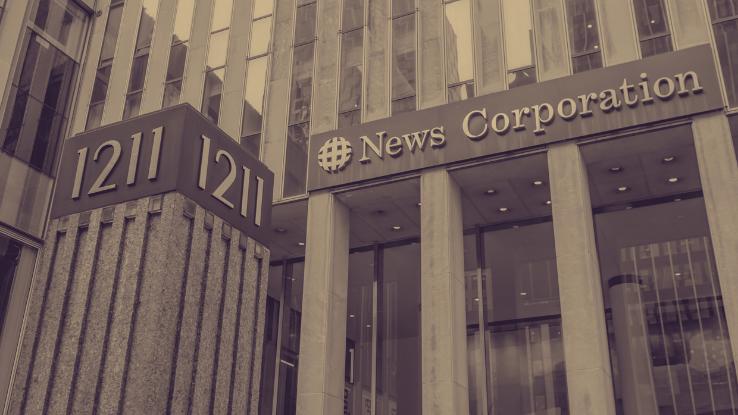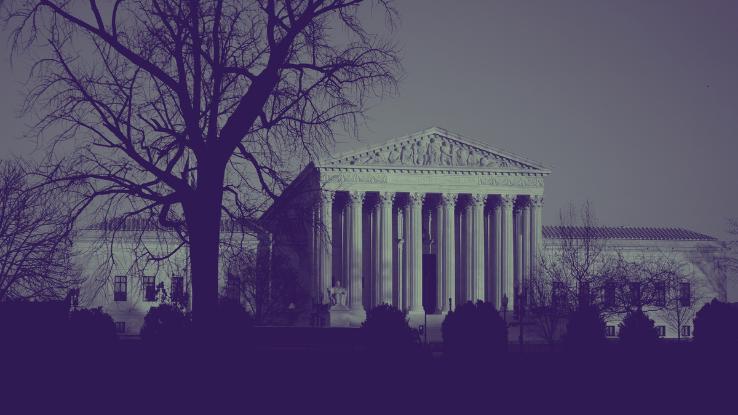The Differences Between “Defamation,” “Libel” and “Slander”

In early 2021, Smartmatic, a United States-based voter technology firm, filed a highly publicized defamation lawsuit against Rupert Murdoch’s Fox News. The lawsuit, which totaled a staggering $2.7 billion, called out Fox anchors, like Maria Bartiromo and Jeanine Pirro, and host Lou Dobbs for spreading misinformation and conspiracy stories about voter fraud and the results of the 2020 presidential election. Smartmatic’s concern for its reputation resulted in a shocking move from Fox Business: The outlet cancelled its highest rated show, Lou Dobbs Tonight, and, in some cases, introduced fact-checking segments.
Meanwhile, Dominion Voting Systems filed its own defamation lawsuit against former President Donald Trump’s then-personal attorney, Rudy Giuliani. The $1.3 billion lawsuit accused Giuliani of peddling “disinformation to purposefully mislead voters,” something the company believes has caused “irreparable harm” to its reputation.
Defining Terms Like “Defamation,” “Libel” and “Slander”
But the harm that stems from misinformation and conspiracies runs deeper than one firm’s or outlet’s credibility. In the most extreme cases, a lack of integrity and fact-checking can threaten democracy and leave an indelible stain on the truth.

With this in mind, when it comes to these lawsuits, there’s a lot of terminology being discussed that might not otherwise crop up in your everyday life. There’s “defamation,” but also terms like “libel” and “slander.” So, what are the differences between these terms?
- Defamation: An intentional false communication that damages a reputation.
- Libel: A published false statement that’s damaging to one’s reputation. In short, written defamation.
- Slander: A false spoken statement that’s damaging to one’s reputation. In short, verbal (or spoken) defamation.
“Defamation law tries to balance competing interests,” attorney Emily Doskow writes. “On the one hand, people should not ruin others’ lives by telling lies about them; but on the other hand, people should be able to speak freely without fear of litigation over every insult, disagreement, or mistake.” Needless to say, finding a way to account for both the harm of defamation and First Amendment-protected free speech has proved tricky, especially in the era of social media.
How Defamation Lawsuits Against Public Figures and Private Citizens Differ
Back in 1964, a landmark United States Supreme Court case, New York Times v. Sullivan, found that certain defamatory remarks were subject to protection under the First Amendment. In the ruling, the Supreme Court noted that we, as a country, have a “profound national commitment to the principle that debate on public issues should be uninhibited, robust, and wide-open.” In other words, if an article made some unpleasant remarks about a politician — a public figure — that ended up not being true, so long as the mistakes were “honestly made” the responsible party should be protected. In the end, it largely boils down to intent.

Of course, it can be difficult to prove if a defamatory remark or statement was issued with malicious intent. According to The Atlantic, “Defamation is often thought of as a matter for civil court, where a wronged party can seek recompense for many false, injurious statements. Twenty-five states, though, have criminal-defamation statutes.”
There are also differences that come into play for both public figures and private citizens. That is, the legal threshold for proving damage from defamation is much higher for a public figure than it is for someone considered a private citizen. The law requires public figures to prove “actual malice,” or a clear intent to harm a reputation by knowingly making false statements, in the interest of protecting freedom of speech and the ability to debate controversial issues in the public sphere. In contrast, Private citizens derive greater protection under the law as they are not expected to be under public scrutiny and also usually do not have the same access to communications channels and platforms as public figures.
While the actual requirements for a defamation case vary between states, general rules note that the statement must either be published or have been heard by a third party. Additionally, the statement must also be provably false and injurious.





